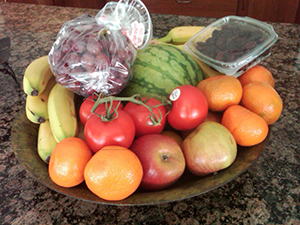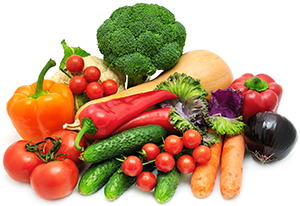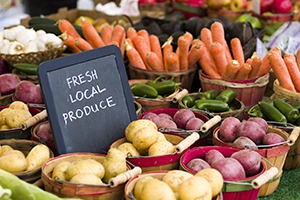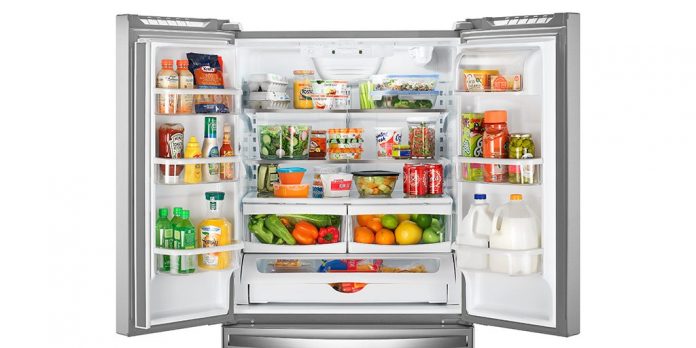One of the key possibilities that many preppers are planning for is the collapse of the power grid. Without electric life as we know it is not possible and one of the appliances we depend heavily on will actually no longer work to keep our food healthy. I’m talking about the refrigerator, the equipment which keeps our food fresher for longer, so we can shop once a week and enjoy the food we have happily, realizing we’re not going to die of any horrible food-borne disease.
Yeah, what would you do if you didn’t have a fridge? Could you just survive? You could, of course! Human beings have existed without refrigeration for centuries. The difference between us and them is, they knew how to:
- Store food they weren’t eating
- Not cook more than they needed at any given meal
- Preserve food so it keeps for the long-term (which is required in regions where winter visits once a year)
Many people are even choosing to live without refrigeration, prior to every infrastructure or civilization collapse, simply because they want to cut their infrastructure dependency and/or reduce their energy costs. If you are going to live without using a fridge, though, then you need to know what you are doing. Different foods have different storage requirements and if you live without a refrigerator you will need to change the way you shop and how you prepare meals. First, let’s look at various foods, and how they can be processed without refrigeration. We’ll then cover some more simple tips.
Foods and How to Store Them
There are other foods that need cooling and there are foods that we know need cooling. Actually, you would be shocked at what foods can hold out of the refrigerator well, and no, I’m not talking about the cold soda or beer. Here are some of the rules you need to know about food storage.
Fruit


Most fruit is able to store on the counter just fine. However, the fruit shelf-life without refrigeration can vary, depending on the type of fruit. Fruit with thicker skins, e.g. oranges and apples, is usually good for about a month. Pears will last a maximum of 2 weeks. Bananas don’t last like that long. Only a few days to mature and then you have to eat them up before they get too ripe.
It is best to eat pineapples and mangoes within 24 hours of ripening, typically 3-4 days. The only type of fruit that definitely doesn’t last long without refrigeration is berries, which should be eaten within 24 hours of buying or harvesting.
Related: 11 Food Storage Lessons Learned from WWI
Vegetables


- Lettuce
- Celery
- Broccoli
- Kale; cauliflower; cabbage; or any of the brassica family
- Herbs
Here is a list of other vegetables and how long they will last without refrigeration:
- Potatoes (1-2 months)
- Onion (1-2 months)
- Sweet potatoes (1-2 months)
- Garlic (1 month)
- Tomatoes (up to 1 week if ripe; up to 2 weeks if green)
- Summer squash; such as zucchini (2 weeks)
- Winter squash; such as butternut and acorn (1 month)
- Peppers (1-2 weeks)
- Eggplant (1 week)
- Turnips and beets (3-4 weeks)
- Carrots (2 weeks)
Related: The 24 Highest Calorie Vegetables for Your Survival Garden
The most important thing to remember is that all products should remain unwashed, including fruit and vegetables, and should never have been cooled. Washing can cause the produce to spoil faster, as it makes it easier for bacteria to get to it. Previous cooling can result in condensation forming on the food, attracting mold, and bacteria.
Eggs
Eggs are something we tend to put in the fridge, but in fact they don’t need refrigeration. For a week, eggs can sit on the counter and be fine, provided they have not been refrigerated (for the same reason as produce) or washed beforehand. If you wash the eggs, the natural antibacterial coating on the eggs is removed, which is called bloom. If a lot of dirt is present, then use a cleaning pad to clean the shell. If you need water, then use cool water and no soap.
There are also a number of preservation methods that you can use to keep the eggs longer than a week. If you have a basement or a root cellar, this is a good start. You can also coat the eggs in something that is non-toxic and will seal the pores and keep out oxygen. Traditionally, people have immersed them in a liquid sodium silicate solution, or coated them with lard or shortening.
Related: My Famine Food Storage Menu
Dairy
This is where freezing begins to become challenging. Let’s start with butter and with cheese. In fact, salted butter can remain unrefrigerated for up to 2 weeks, even if you have a cooler place, such as a cool basement or cellar, this would help to extend the shelf life. One can say the same for a number of different cheeses, especially hard cheeses.
When it comes to milk, it’s just got to cool down. If you can do without milk, it’s really great. If you use it for cooking in small amounts, buy it then and use it the same day. If you need more milk, the best thing to do is to use powdered milk or canned milk or other milk package for storage.
Meat
Food is the other problem when it comes to not getting refrigeration. Without it fresh meat won’t keep. Duration. If you eat meat, the same day you buy it, you must cook it. You should keep that in a cooler for short periods of time (within 24 hours). You may also purchase canned meat or dried meat, it will be preserved for long periods.
Related: Depression Recipes – Simple Meal Ideas for Hard Times
Condiments
The last thing we usually keep in the refrigerator is condiments, but we don’t actually need to. If stored without refrigeration, the conditions will be good. Jams, jellies, and maple syrup last for 2-4 weeks. Peanut butter does even better with months of shelf-life. When it comes to honey, it has an indefinite shelf-life;,although it might crystalize.
Ketchup, relish, mustard, and anything pickled will last without refrigeration for a number of months. Surprisingly, even mayonnaise endures indefinitely, but only when no bacteria enter the container. As long as you take care of using a clean spoon every time you use the mayonnaise, or buy it in a squeeze bottle, you’re going to be fine.
Other Tips
Now that you have a good idea of what foods without refrigeration you can store and for how long, there are a few other things you should know about living without a refrigerator. Here are a few last tips to take with you.
Leftovers
This could be the hardest to deal with-no leftovers! Without a fridge, you should not store leftovers for a few days, so you can eat them later in the week. You’re not going to make that mammoth batch of soup to eat for a week-lunch. When living without refrigeration; you will need to cook smaller meals that will be eaten then and there. If you happen to have anything left over; you need to it within 24 hours.
Related: 50 High Value Items To Stockpile For When SHTF
Find Other Storage Methods
You aren’t limited just to counter storage if you don’t have refrigeration. There are a number of ways you can store food to help it keep cool without using a fridge. Here are some suggestions:
- Root cellar/basement: This was mentioned above and it provides a great place to store produce and preserves when you have no fridge.
- Evaporating cooler: Use a cistern or screened enclosure in which to store your food and then cover with damp cloths. The evaporation from the cloths will help keep it cool inside, but you can only do this if you live somewhere that does not experience high humidity.
- A Zeer pot: A Zeer pot is simply another form of evaporative cooling. Two terracotta pots, one smaller than the other are used. Put the smaller pot inside the lager pot and fill the space between them with wet sand. Cover it with a damp cloth and re-dampen the cloth and the sand when required.
- Don’t harvest: If you grow your own food and it will keep just fine in the ground or on the plant, then leave it there until you are going to use it.
Shop Daily
Do what the Europeans do and shop for your meat and produce daily. This way, you will use what you buy in the same day and you won’t have much to store. It certainly keeps things simple.
Buy from the Farmer


Buy your produce, eggs; and meat (if possible) directly from the farmer, either at the farm or a farmer’s market. Thus you can ensure that the food has not previously been washed or refrigerated and you know how it was grown/raised. This gives you more power over what you’re buying.
At the end of the day, a fridge is a convenience, one we have come to rely on so deeply that it feels like a necessity. But, a refrigerator is an energy guzzler without which we can live, if we are willing to change our shopping and eating habits and make some adjustments. Give it a try and maybe you’ll find it.






















